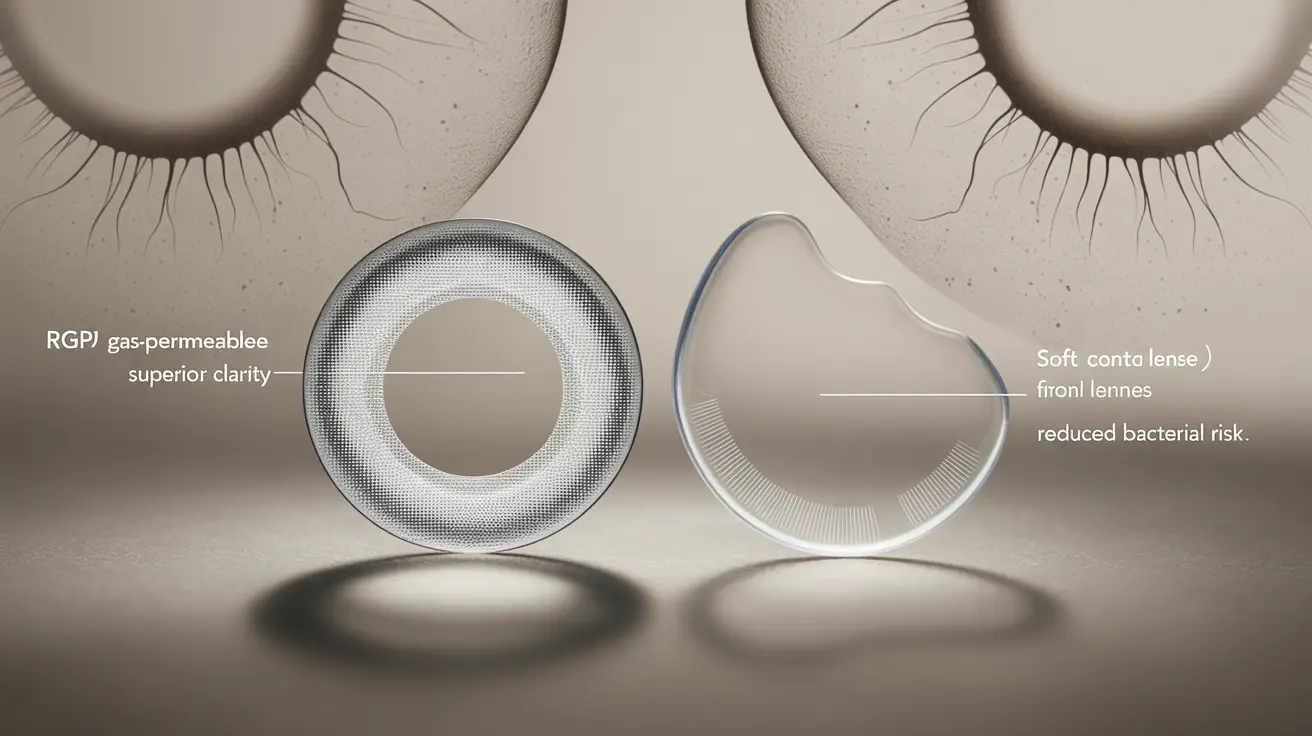Hard contact lenses, also known as rigid gas-permeable (RGP) lenses, offer unique advantages for vision correction that make them an excellent choice for many people. While less common than their soft counterparts, these durable lenses provide superior clarity and long-term value for specific vision needs.
Whether you're considering switching to hard contact lenses or are new to contact lenses altogether, understanding their benefits, care requirements, and adaptation process is crucial for success. Let's explore everything you need to know about these specialized vision correction tools.
Key Benefits of Hard Contact Lenses
Hard contact lenses excel in several areas where soft lenses may fall short. Their rigid material provides exceptionally crisp vision and maintains its shape better than soft lenses, resulting in more stable vision correction. These lenses are especially effective for correcting astigmatism and irregular corneas.
Another significant advantage is their durability. With proper care, a single pair of RGP lenses can last a year or longer, making them more cost-effective in the long run compared to frequently replaced soft lenses. They're also less likely to harbor bacteria, reducing the risk of eye infections.
Proper Care and Maintenance
Maintaining hard contact lenses requires dedication to proper cleaning and storage procedures. Always wash your hands thoroughly before handling your lenses, and clean them daily with specialized RGP cleaning solution. Never use tap water or saliva to clean or store your lenses.
Essential care steps include:
- Daily cleaning with RGP solution
- Proper storage in fresh solution overnight
- Regular case cleaning and replacement
- Following professional guidelines for lens replacement
- Avoiding exposure to water while wearing lenses
Adaptation Period and Comfort Management
New RGP lens wearers typically experience an adaptation period lasting between one to two weeks. During this time, you may notice increased awareness of the lenses and some initial discomfort. This is normal and typically resolves as your eyes adjust to the new sensation.
To manage comfort during adaptation:
- Start with shorter wearing periods and gradually increase duration
- Use prescribed rewetting drops as needed
- Follow your eye care professional's wearing schedule
- Remove lenses if experiencing significant discomfort
- Maintain regular follow-up appointments
Medical Conditions Best Suited for RGP Lenses
Hard contact lenses are particularly beneficial for several vision conditions:
- Keratoconus
- High astigmatism
- Post-surgical corneal irregularities
- Presbyopia (with specific RGP designs)
- Severe myopia requiring precise correction
Dry Eye Considerations
Contrary to common belief, RGP lenses can be suitable for some people with dry eyes. Their smaller size means they cover less of the cornea, allowing more oxygen to reach the eye. Additionally, these lenses don't dehydrate like soft lenses, potentially making them more comfortable for certain dry eye patients.
Frequently Asked Questions
What are the main benefits of using rigid gas-permeable (RGP) lenses compared to soft contact lenses? RGP lenses provide sharper vision, better durability, improved oxygen permeability, and are more cost-effective long-term. They're especially effective for complex prescriptions and astigmatism correction.
How do I properly care for and maintain hard contact lenses to avoid infections? Clean lenses daily with specialized RGP solution, store them in fresh solution nightly, regularly clean the lens case, and replace lenses as recommended by your eye care provider. Never use water or saliva for cleaning.
Are RGP lenses suitable for people with severe dry eyes, and why? RGP lenses can be suitable for some dry eye patients because they don't dehydrate like soft lenses and allow more oxygen to reach the eye. However, suitability depends on individual cases and should be determined by an eye care professional.
What is the typical adaptation period for getting used to hard contact lenses, and how can discomfort be managed? The adaptation period typically lasts 1-2 weeks. Manage discomfort by gradually increasing wearing time, using prescribed rewetting drops, and following your eye care professional's recommended wearing schedule.
What are some common conditions or vision problems that hard contact lenses are particularly recommended for? Hard contact lenses are especially recommended for keratoconus, high astigmatism, post-surgical corneal irregularities, presbyopia, and cases requiring precise vision correction.




